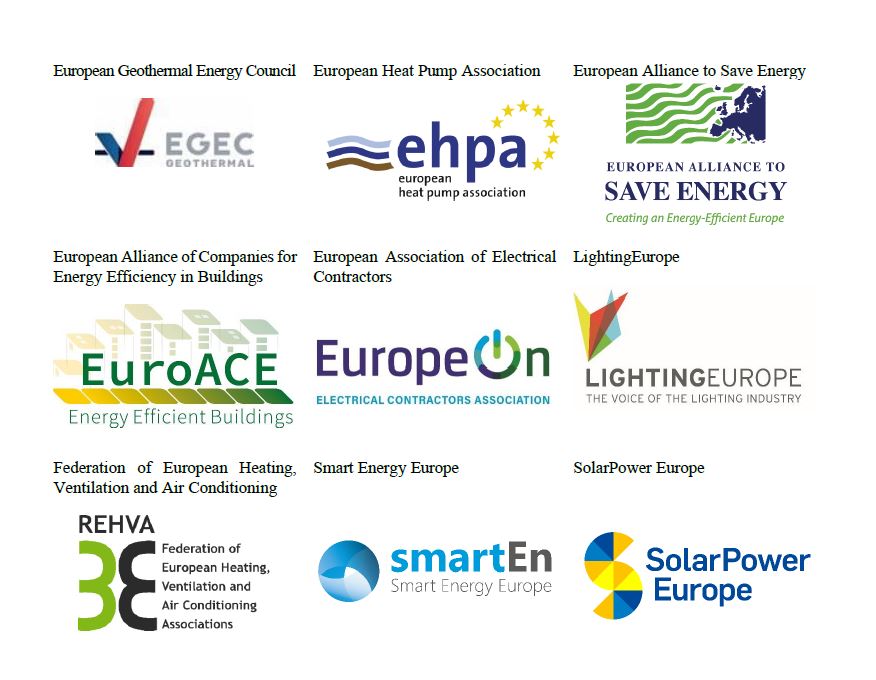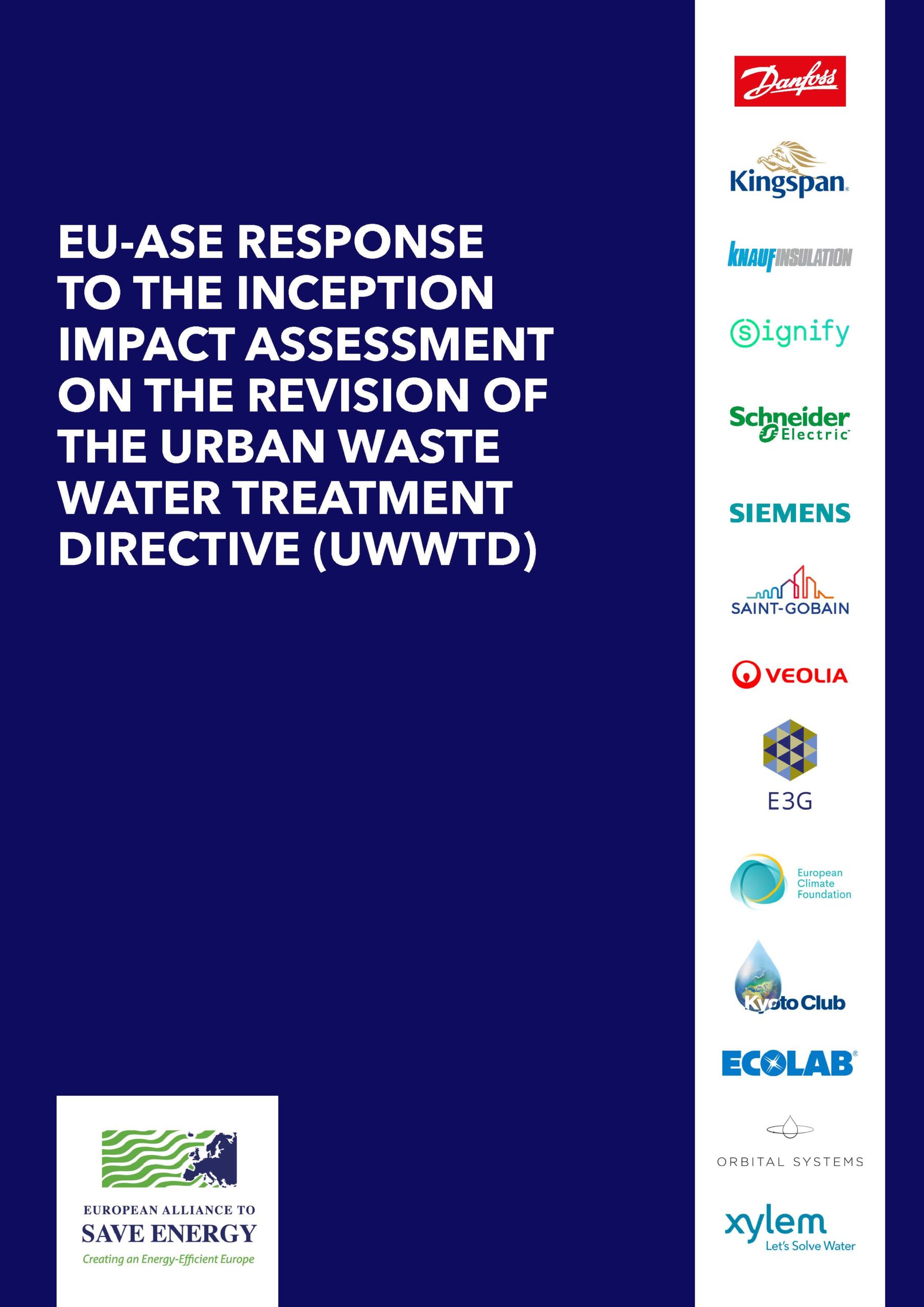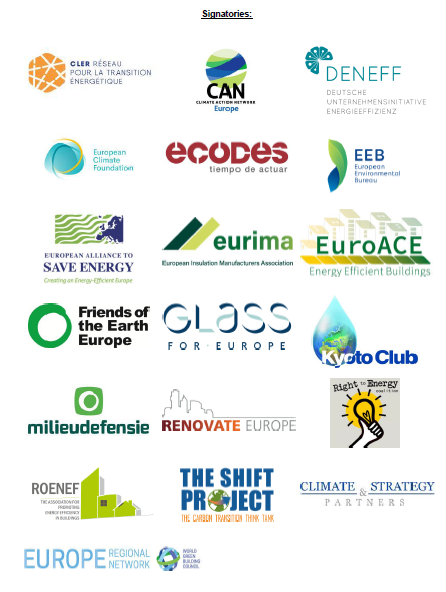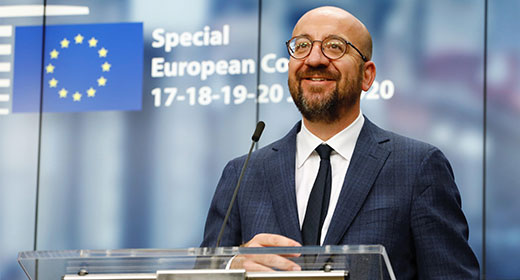EU-ASE supports call from over 150 CEOs urging EU to raise 2030 emissions target

In a critical year for climate action, five years on from the landmark Paris Agreement and with the clock ticking for countries to ratchet up ambition before the end of the 2020, CEOs from over 150 European businesses, investors and business networks are calling on EU policymakers to support an EU 2030 greenhouse gas (GHG) emissions reduction target of at least 55%, necessary to raise the pace and focus of transition efforts for the EU to become a climate-neutral continent by 2050.
The European Alliance to Save Energy (EU-ASE) and its President Monica Frassoni are proud to support this call and to join such group of progressive businesses at a crucial time for Europe and the World. Among EU-ASE membership, the signatories include the CEOs of the following companies: Signify, Schneider Electric, Saint-Gobain, and Knauf Insulation.
The letter states:
“What we urgently need to see next is an ambitious implementation of the recovery package focused on achieving a green and digital transition, with the European Green Deal at its core and an elevated short-term emissions reduction target in its sights.”
“The right decisions now can help create and protect healthy, thriving and fair communities and secure a roadmap for a prosperous economy. Delivering Europe’s long-term ambition to become the first climate neutral continent by 2050 requires an extensive set of urgent measures to scale up action. From a business and investor perspective, clarity on the net zero transition pathway and timetables for each sector, as well as policy that enables substantial investments in carbon neutral solutions is essential.
“We are writing to call on you, as European leaders, to avoid the worst effects of climate change and secure a sustainable, competitive economic recovery by:
- endorsing the ambition set out in the European Green Deal
- submitting resilient recovery plans which enable the green investments needed to deliver climate neutrality
- agreeing a clearly defined target to reduce domestic greenhouse gas emissions by at least 55% by 2030 and associated objectives
“We understand the risks posed by climate change and biodiversity loss to our businesses and are already working to unlock change in key economic sectors. Investors, banks and insurers are working to transition portfolios to net zero emissions. More than 900 companies are taking science-based climate action and more than 400 have approved science-based targets. We are investing heavily in clean energy, energy efficiency and electrification, lowering emissions across value chains and the lifecycle of our products, and developing better practices in the bioeconomy.”
As a strong signal of business and investor leadership for a healthy, resilient, zero carbon recovery, the letter is being profiled by the UN Climate Champions Race To Zero campaign at the Opening Day of Climate Week NYC. The letter is being presented to Executive Vice President of the European Commission Frans Timmermans.
The signatories, members of the Corporate Leaders Groups, the We Mean Business coalition, as well as IIGCC and Business Ambition for 1.5C, and many business networks from across Europe, acknowledge the urgency of the climate crisis, calling on the EU to lead the way towards decarbonisation of the global economy by 2050 at the latest.
In a fast-changing political and economic environment, 2025 was a year of continued efforts to strengthen security, stability, and competitiveness for European businesses.
Throughout the year, our work demonstrated that energy efficiency is not only essential to achieving climate goals, but also a key driver of innovation, energy independence and sustainable long-term growth across Europe.
Strong engagement with policymakers, combined with the successful organisation of the 4th European Energy Efficiency Day, highlighted the importance of collaboration and dialogue in advancing shared objectives. Partnerships across sectors and institutions remained central to delivering impact and shaping effective energy policies.
Looking ahead to 2026, we will intensify our efforts to secure the regulatory certainty that can accelerate the energy transition, while providing businesses with the investment confidence they need and strengthening Europe’s competitiveness.
Read the full Activity Report here.







